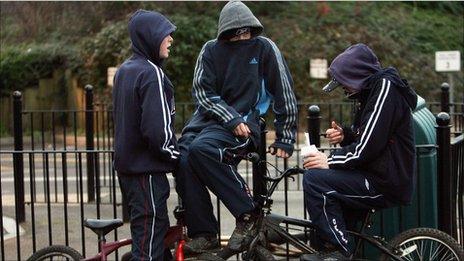Drugs gangs recruiting nine-year-olds, research suggests
- Published
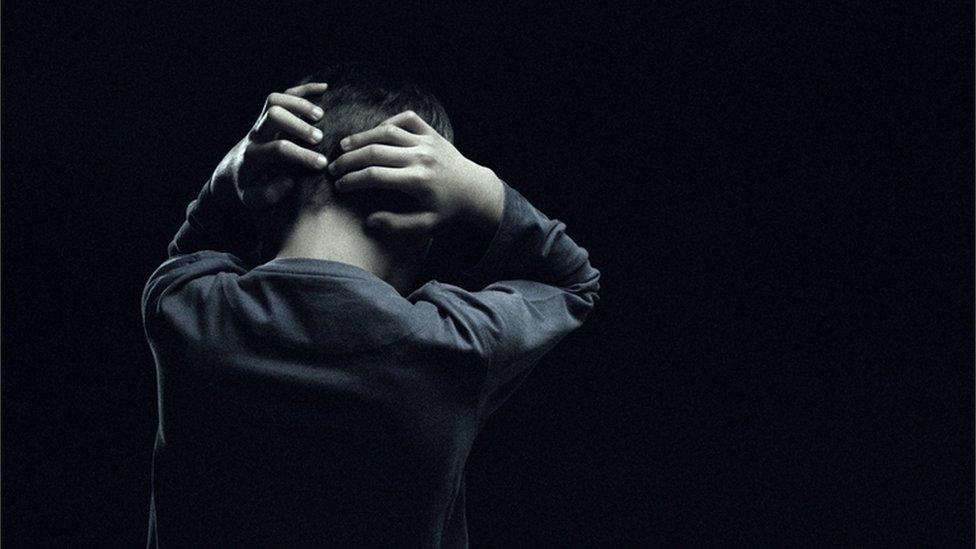
Children as young as nine are being drawn into gangs, often to deliver or store drugs, new research published by the Home Office, external suggests.
Schoolchildren, recruited with offers of trainers or tracksuits, are set drug selling targets, and punished if they are not met, researchers were told.
The study also suggested that the sexual exploitation of women and girls in gangs is becoming more prevalent.
The government is extending its programme to tackle gang exploitation.
For the study, researchers interviewed staff from the police, probation service, local authorities and health services in 33 areas around England and Wales to find out how the nature of gangs, and their perception, is changing.
They also spoke to current and ex-gang members.
Revenge against rivals
One interviewee said: "The method of recruitment is to target young, easily influenced youths as young as 12-years-old from local schools and the surrounding area.
"They (gang members) recruit them with the lure of earning money or being given new trainers, tracksuits etc, then use these runners to deal for them."
In some instances youngsters were away from home or care for several days, the report found.
Agencies, particularly those in London, indicated that the use of young, often vulnerable, people to transport drugs to other parts of the country was a major concern.
The youngest gang members were most commonly said to be aged 12 to 14 (50%), while a third were said to be between nine and 11. A handful (7%) of gang members were thought to be under nine, according to the report.
Nearly all interviewees said sexual or physical violence against women and girls happened "sometimes" or "often" within gangs, often as punishment or to take revenge on rival gangs.
Former gang member Darryl Laycock works with Greater Manchester Police to turn young people away from street violence
Interviewees said women and girls were used to carry and hide weapons, take prohibited items into prison and transport drugs.
Particular concerns were highlighted around the notion of sexual consent within gangs.
Gang associates told researchers that girls were motivated to perform sexual acts with gang members "because of your reputation, because of your name".
Asked whether a girl got anything out of sex with 10 men, one associate said: "She gets to brag about it with her brethren."
Rise of social media
The report also suggested that gangs were now less visible on the street, as more covert tactics were used to avoid detection.
Fewer gangs now met in public places or used graffiti to mark territory, it said, preferring to use social media to promote the gang and its reputation.
A minority of gangs were said to be wary of operating online for fear of attracting police attention.
To coincide with the publication of the research, the government announced it was extending its programme to tackle exploitation by gangs to Basildon, Grimsby, Harrow, Hastings and Eastbourne, High Wycombe, Medway, Sefton, Southampton and Swindon.
Home Office minister Karen Bradley said: "Gang and youth violence has a devastating impact on young people, their families and local communities."
- Published12 August 2015
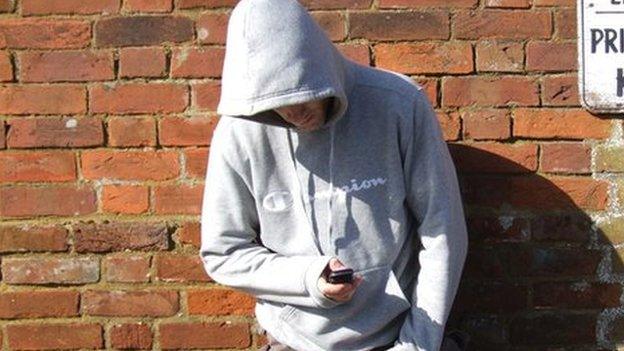
- Published15 April 2015
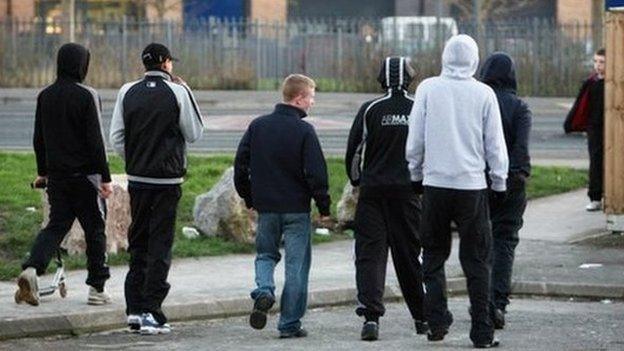
- Published22 November 2012
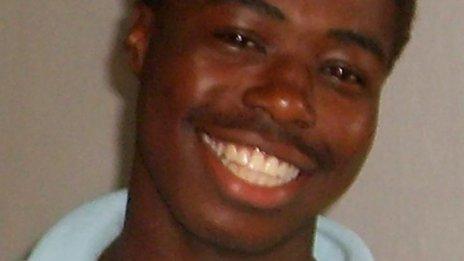
- Published12 October 2011
